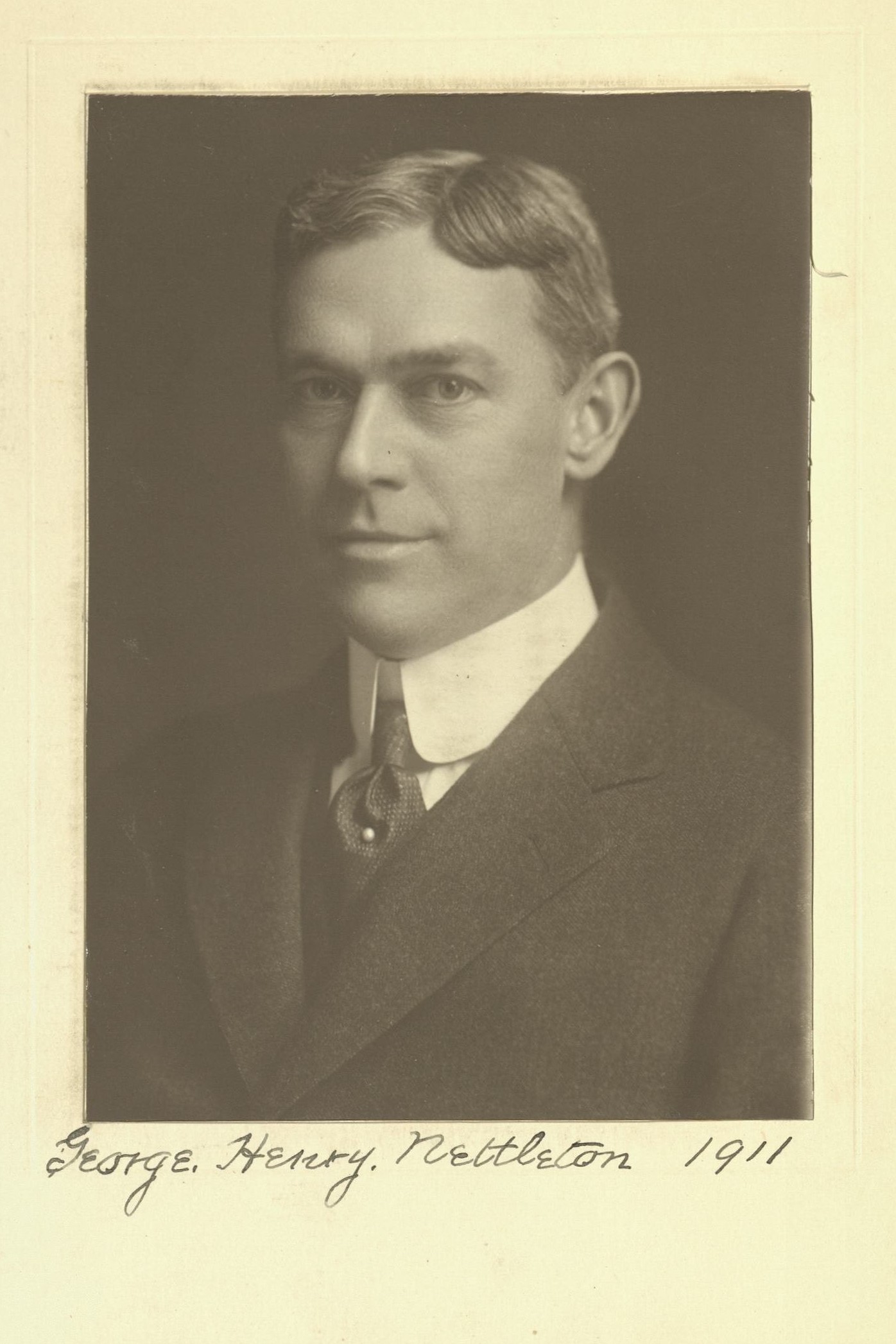Assistant Professor of English
Centurion, 1911–1959
Born 16 July 1874 in Boston, Massachusetts
Died 5 February 1959 in New Haven, Connecticut
Buried Grove Street Cemetery , New Haven, Connecticut
, New Haven, Connecticut
Proposed by Henry Oliver Walker and Grosvenor Atterbury
Elected 3 June 1911 at age thirty-six
Century Memorial
The whole of George Nettleton’s adult life was devoted to Yale. He prepared at Andover and then entered the class of 1896 in Yale College. After his graduation he spent a year at the University of Geneva and returned to New Haven to accept an instructorship in English. In 1900, he received his Ph.D. degree. He was promoted to assistant professor in 1906. He became full professor of English in Yale’s Sheffield Scientific School in 1916, succeeding the late Wilbur Cross. He was appointed professor of English in Yale College in 1921 and was named Lamson Professor of English twelve years later.
Nettleton’s deep interest in international education took him to Paris during the First World War as director of the Yale Bureau there. He organized and was first director of the American University Union in Europe—that immensely valuable institution which made it possible for American servicemen to study at French and English universities after the Armistice. For this undertaking he was made a Chevalier of the Legion of Honor. At this time, he also held lectureships at the Sorbonne in Paris and at Cambridge in England. He was a trustee of Vassar College from 1919 to 1939 and was acting president there in 1922-23. In 1937, after President Charles Seymour took office, he became dean of Yale College.
In addition to his scholarly pursuits, he was much interested in athletics. For a while, he was chairman of the Board of Control of Yale Athletics. These years from 1925 to 1930 were a period of expansion—as they were in all American universities—and adjustment of sports and studies was necessary to meet the increase in enrollment. The planning of the Payne Whitney Gymnasium also required much of Nettleton’s attention.
Nettleton was known for his thoroughness and his meticulous awareness of detail, but he is also remembered by those who were close to him as a kind and generous man. He is said to have devised and supported many private or hidden charities. It was his custom to invite his subordinates home to Sunday dinner and talk with them about sports as well as literature. He also took a personal interest in the students with whom he worked both in the Sheffield Scientific School and in the College. It was characteristic of him to write the history of Yale men in the First World War. He knew most of these boys well and he saw in them something of the spirit of Rupert Brooke.
George Nettleton lived to be eighty-four. For more than half of his life—forty-eight years—he was a member of the Century.
Roger Burlingame
1960 Century Association Yearbook

